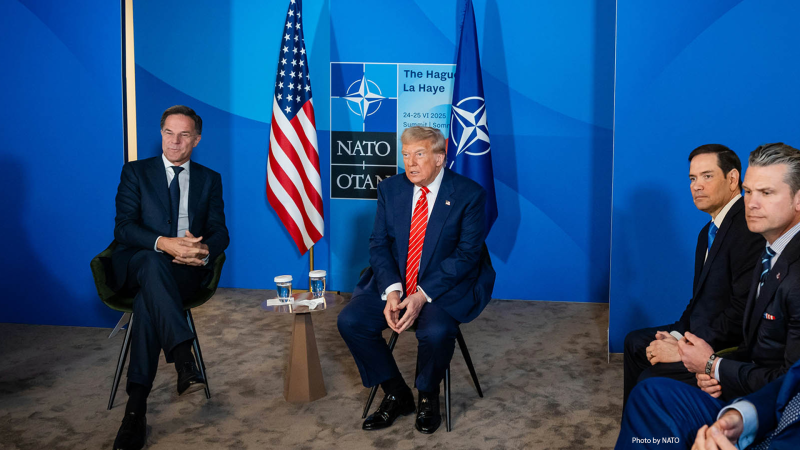The 2025 NATO Summit in The Hague, held from June 24-25, was far from ordinary. While Ukraine remained a key focus, the meeting was overshadowed by the return of U.S. President Donald Trump, whose transactional diplomacy and unpredictability reshaped discussions. Trump arrived after a failed Middle East ceasefire deal, dampening his expected diplomatic triumph.
NATO leaders cautiously welcomed Trump, aware of his threats to withdraw the U.S. if European members didn’t increase defense spending. In a breach of diplomatic norms, Trump leaked private messages with NATO Secretary General Mark Rutte, where Rutte appeared to praise Trump’s ability to pressure allies into higher spending—sparking backlash in Europe.
The summit’s major outcome was a new defense investment framework, raising spending targets from 2% to 5% of GDP by 2035, covering military and emerging tech like AI and cybersecurity. However, divisions persisted, with Spain and Italy resisting the hike. Ukraine’s Zelenskyy was excluded from key talks, signaling NATO’s reluctance on membership—reflecting Trump’s opposition.
Meanwhile, U.S.-Iran tensions escalated after unauthorized airstrikes, threatening to divert attention from NATO’s agenda. For nations like the UAE, the summit highlighted opportunities in tech-driven defense cooperation but also regional instability risks.
Ultimately, the summit revealed a NATO adapting to hybrid threats and Trump’s disruptive leadership, where flattery and pragmatism sustain unity—for now.

